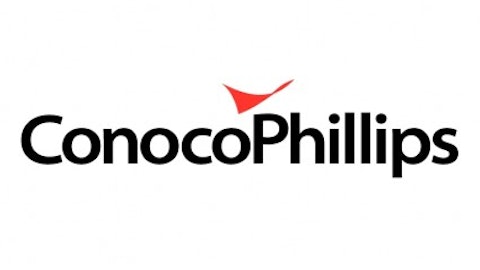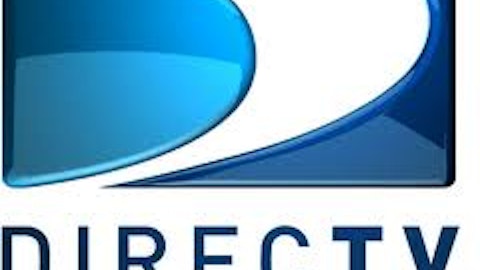For CBS, an incremental viewer is positive for overall viewership, but it also provides a nice revenue stream ($12/yr x 3.2 million customers = $38 million) as well as superior local viewership (it seems). For Time Warner, not having CBS simply makes options such as DIRECTV (NASDAQ:DTV) and Dish Network marginally more appealing. If this is the case, we’d anticipate the carriage fees to remain similar to where they are today.
However, it’s still a bit too early to tell whether or not people are really affected by the CBS blackout. For one, there may be a large difference between how consumers react to not being able to watch “Mike & Molly” reruns versus not being able to watch a favorite NFL football team during the first week of the upcoming season. If the FCC doesn’t intervene, and we see no agreement reached, the NFL season could be the catalyst that decides who caves.
Valuentum’s take
Though the argument may seem relatively small, Vauentum thinks the future of retransmission fees will have a large impact on which part of the industry captures the greatest economic rent (the greatest piece of the industry profit pie). If Time Warner caves to higher fees because it needs the programming, then we think the content owners such as CBS and Disney will be the winners, while content distributors such as Dish, DIRECTV (NASDAQ:DTV), Time Warner, and Netflix will be net-losers (over the long haul).
At this point, Valuentum tends to believe the FCC will side with the content distributors since limiting carriage fee increases will almost certainly be a net-positive for consumers. Let’s also remember that the unbundling of content may be significantly more expensive for consumers than it would be for bundled content. Oftentimes, the goal of regulation is to protect consumers, and they are undoubtedly the loser with higher retransmission fees.
Valuentum’s favorite idea in the space remains DIRECTV (NASDAQ:DTV). We think its valuation (currently discounted relative to peers) reflects exaggerated fears surrounding the “cutting the cord” phenomenon. Nor do we believe the market is accurately valuing the firm’s growing Latin American business. Churn in PanAmerica remains low at just 1.33%, and we think subscriber growth should continue to grow at a solid clip . A growing middle class and a lack of competition in the content distribution space leave DIRECTV (NASDAQ:DTV) well-positioned to become a major player. DIRECTV (NASDAQ:DTV) already has the second largest share in Brazil, a market that could more than double in size in the coming decades .
Limited or no growth in carriage costs will be a marginal positive for DirecTV. At this time, we believe shares of the firm are worth $80, and we hold the name in the portfolio of Valuentum’s Best Ideas Newsletter.
The article What’s Going on in the Time Warner-CBS Battle? originally appeared on Fool.com is written by RJ Towner.
RJ Towner has no position in any stocks mentioned. Valuentum holds shares of DirecTV in the portfolio of its Best Ideas Newsletter. The Motley Fool recommends DirecTV.
Copyright © 1995 – 2013 The Motley Fool, LLC. All rights reserved. The Motley Fool has a disclosure policy.




